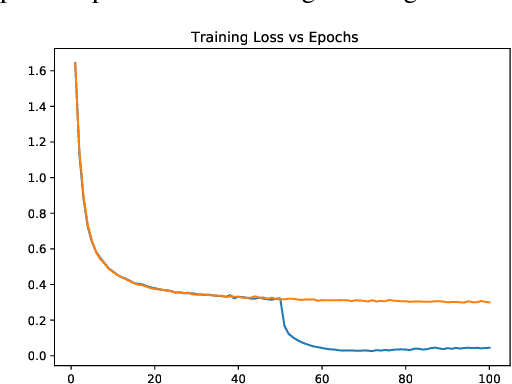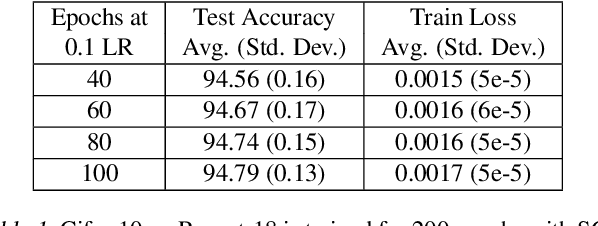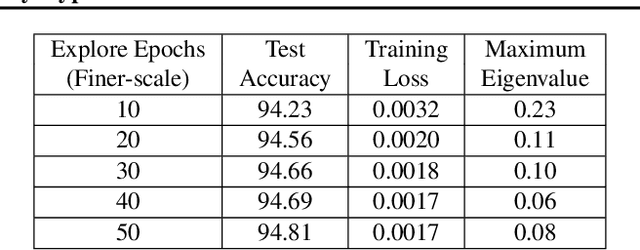Nikhil Iyer
LRTuner: A Learning Rate Tuner for Deep Neural Networks
May 30, 2021



Abstract:One very important hyperparameter for training deep neural networks is the learning rate schedule of the optimizer. The choice of learning rate schedule determines the computational cost of getting close to a minima, how close you actually get to the minima, and most importantly the kind of local minima (wide/narrow) attained. The kind of minima attained has a significant impact on the generalization accuracy of the network. Current systems employ hand tuned learning rate schedules, which are painstakingly tuned for each network and dataset. Given that the state space of schedules is huge, finding a satisfactory learning rate schedule can be very time consuming. In this paper, we present LRTuner, a method for tuning the learning rate as training proceeds. Our method works with any optimizer, and we demonstrate results on SGD with Momentum, and Adam optimizers. We extensively evaluate LRTuner on multiple datasets, models, and across optimizers. We compare favorably against standard learning rate schedules for the given dataset and models, including ImageNet on Resnet-50, Cifar-10 on Resnet-18, and SQuAD fine-tuning on BERT. For example on ImageNet with Resnet-50, LRTuner shows up to 0.2% absolute gains in test accuracy compared to the hand-tuned baseline schedule. Moreover, LRTuner can achieve the same accuracy as the baseline schedule in 29% less optimization steps.
Wide-minima Density Hypothesis and the Explore-Exploit Learning Rate Schedule
Mar 09, 2020



Abstract:While the generalization properties of neural networks are not yet well understood, several papers argue that wide minima generalize better than narrow minima. In this paper, through detailed experiments that not only corroborate the generalization properties of wide minima, we also provide empirical evidence for a new hypothesis that the density of wide minima is likely lower than the density of narrow minima. Further, motivated by this hypothesis, we design a novel explore-exploit learning rate schedule. On a variety of image and natural language datasets, compared to their original hand-tuned learning rate baselines, we show that our explore-exploit schedule can result in either up to 0.5\% higher absolute accuracy using the original training budget or up to 44\% reduced training time while achieving the original reported accuracy.
 Add to Chrome
Add to Chrome Add to Firefox
Add to Firefox Add to Edge
Add to Edge